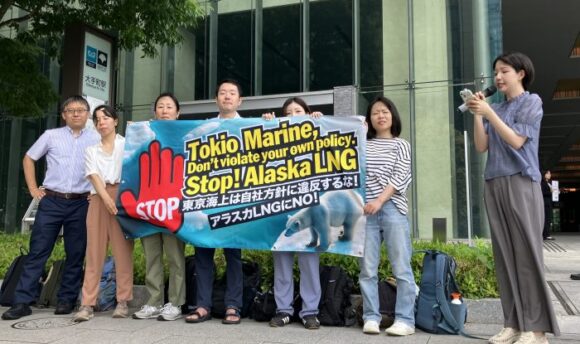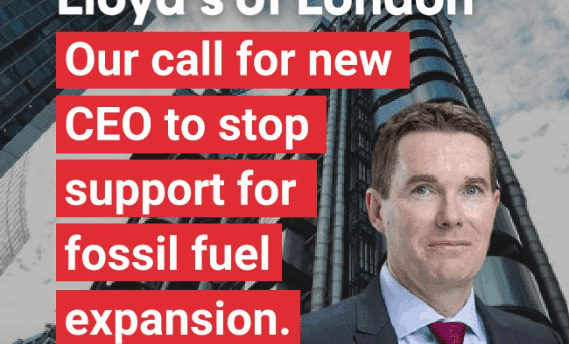The world’s largest insurance brokers have refused to rule out support for the giant Carmichael coal mine in Australia, despite growing opposition to the project among insurers and financial institutions.
73 organisations with a combined membership of more than 76 million wrote to Marsh, Aon, Willis Towers Watson, the JLT Group and Arthur J. Gallagher, who dominate the global brokerage market, calling on them to publicly rule out providing services to the mine. Yet although the first four have all made climate pledges, none of them gave any commitment not to support Carmichael.
"Brokers’ climate pledges are worthless if they continue to undermine global climate targets by supporting coal expansion. All actors playing a critical role in the global economy have a responsibility to bring their businesses in line with the Paris Agreement. The Insure Our Future campaign will pay closer attention to the role of brokers in 2019.”
Coal burned over the approved lifetime of the mine would emit 4.6 billion tonnes of CO2, equivalent to more than eight years of Australia’s annual greenhouse gas emissions. Developing the mine would open up the huge reserves of Queensland’s Galilee Basin to exploitation, where there are proposals for even larger mines. Coal is the biggest single source of CO2 emissions; at least 59% of all coal power must be phased out by 2030 to meet the Paris climate target of limiting global warming to 1.5°C, according to the UN’s Intergovernmental Panel on Climate Change.
The Carmichael mine is becoming increasingly toxic. Ten of the world’s foremost insurers have either ruled out insuring the mine or pledged not to cover new coal projects. More than 37 other global financial institutions have publicly rejected any involvement in the mine.
Willis Towers Watson was the only broker to respond to the NGO letter. It stated it does not comment on specific projects as a matter of principle and refused to rule out support. Yet four of the five brokers have made numerous commitments to mitigating climate change and strengthening climate resilience.
- Aon argued in a recent report that “a rapid shift away from fossil fuels in favor of renewable energy sources” is needed. “If society does fail to take action”, the broker warned, “the final outcome may be catastrophic.”
- Marsh calls itself “a leader in climate resilience solutions for corporations and governments” and offers an advisory service on preparing for climate change.
- The JLT Group has recognized “that climate change and the scarcity of natural resources pose a significant challenge to us as a society and as a business”.
- Willis Towers Watson launched a Global Ecosystem Resilience Facility last year and signed on to the UN Principles for Responsible Investment.
Arthur J. Gallagher is the only broker not to have made any sort of climate policy pledge. The company has invested in 34 facilities refining coal, a business which contributed a full quarter of its revenues in the first nine month of 2018. Green Century Funds and Calvert, two of America’s best-known green investors, are reviewing their stakes in the firm due to environmental concerns.
By matching developers with insurers, insurance brokers play a critical role in making coal projects happen. New mining or infrastructure projects are typically insured by syndicates of 15 or more participants. Their developers invariably rely on brokers to manage their risks and arrange the proper insurance coverage.
A lack of concrete action by brokers contrasts with a growing movement against coal by primary insurers and reinsurers:
- Europe’s four biggest primary insurers have now restricted insurance for coal. Allianz and Generali limited underwriting and AXA tightened its policy in 2018, while Zurich announced restrictions in November 2017.
- One third of the reinsurance market has now restricted cover for coal. Reinsurance giants Swiss Re and Munich Re announced underwriting restrictions in 2018, going beyond those already announced by SCOR.



